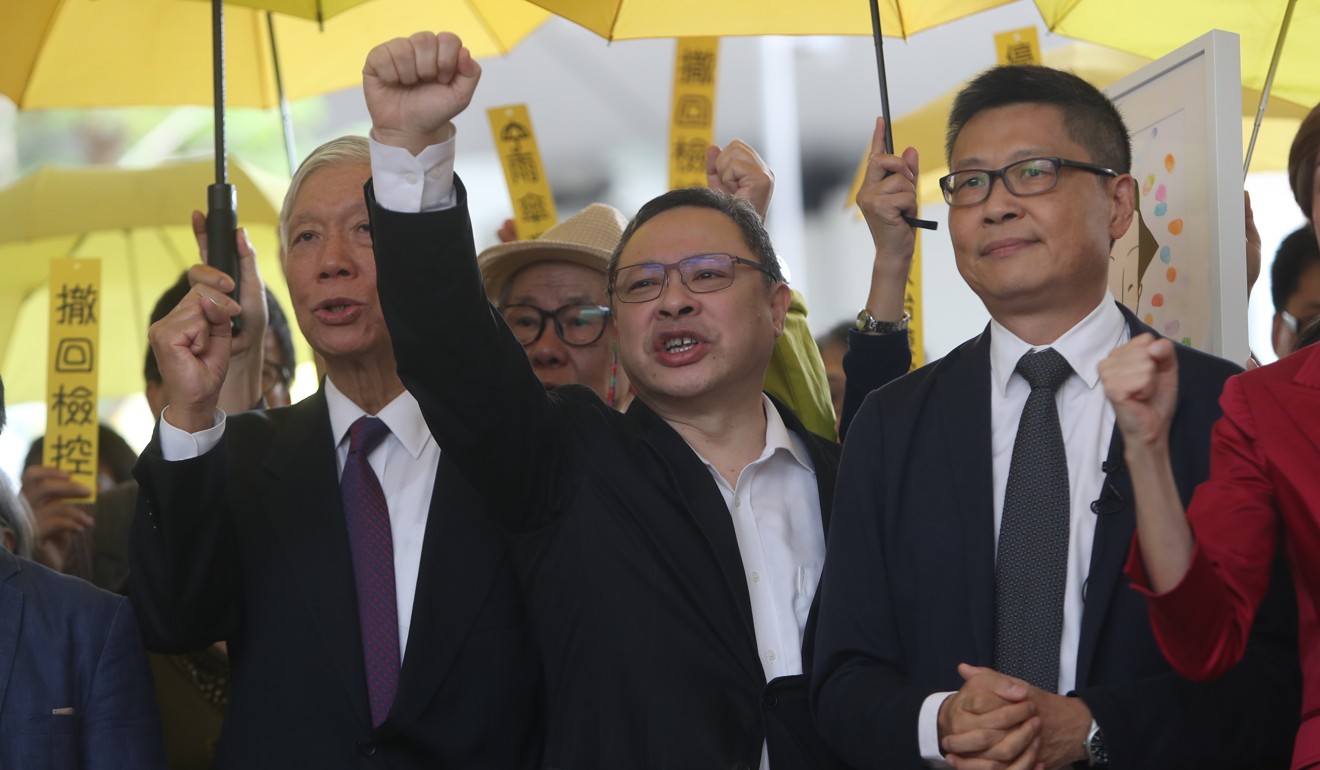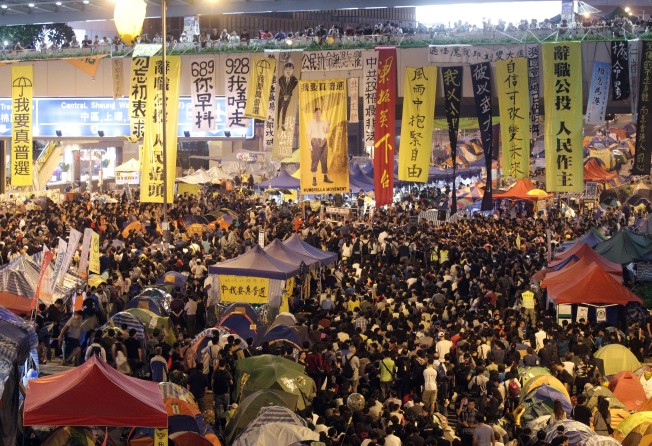
Small fraction of Occupy protesters were there because of calls from movement’s founding trio, trial hears
- Prosecutors say Benny Tai, Dr Chan Kin-man and Reverend Chu Yiu-ming instrumental in bringing tens of thousands onto the streets of Admiralty
- But defence cites study suggesting people were there for other reasons

Only a fraction of participants in 2014’s Occupy protests were strongly motivated to be there by the calls of the movement’s founders, their trial heard on Thursday.
That came as the three instigators attempted to counter allegations that they were instrumental in bringing tens of thousands out onto the streets of Admiralty for the pro-democracy sit-ins which brought parts of the city to a standstill for up to 79 days.
They were Benny Tai Yiu-ting, 54, and Dr Chan Kin-man, 59 – both academics – and Reverend Chu Yiu-ming, 74, who all denied three joint counts: one of conspiracy to cause public nuisance; one of inciting others to cause public nuisance; and one of inciting people to incite others to cause public nuisance.
Their defence cited at West Kowloon Court a Chinese University survey which said that of more than 1,200 people polled at the Admiralty protest site four years ago, only 6.5 per cent rated the trio’s call-out among their key motivations for being there.

A lot more found things like a desire for electoral reform and fears for the city’s liberties to be more compelling, Francis Lee Lap-fung, the journalism scholar who conducted survey, said.
The poll, which interviewed 1,242 protesters on the site at the time, offered a different picture to the one painted by prosecutors, who said the three founders – along with six others in the dock – were the key players in inciting the public to cause public nuisance.
Conviction on the charges does not depend on anyone actually having been incited. But the defence barrister Gerard McCoy SC deployed the survey to back what the three said they were thinking at the time: that, as Chan testified earlier, they never intended for so many people to show up.
The lawyers said it was the first time a survey had been used in a Hong Kong criminal trial.
Prosecutors said Chan, Tai, Chu and the six others summoned people to block major thoroughfares in Admiralty during the protests that began on September 28 that year, to force the government to respond to their political demands for greater democracy.
But Lee’s work on Thursday showed that most people chose “protect Hong Kong’s liberty” as their key motivator. A total of 87.2 per cent chose it as “very important”, compared with the 6.5 per cent who ranked the “call from [the Occupy Central] trio” as such.
The six others in the dock included legislators Tanya Chan, 47, and Shiu Ka-chun, 49, former student leaders Tommy Cheung Sau-yin, 24, and Eason Chung Yiu-wa, 26, and Raphael Wong Ho-ming, 30, vice-chairman of the League of Social Democrats, all of whom faced – and denied – the two incitement charges.
Former Democratic Party lawmaker Lee Wing-tat, 63, denied one count of incitement to commit public nuisance.
The case continues before Johnny Chan Jong-herng on Friday.